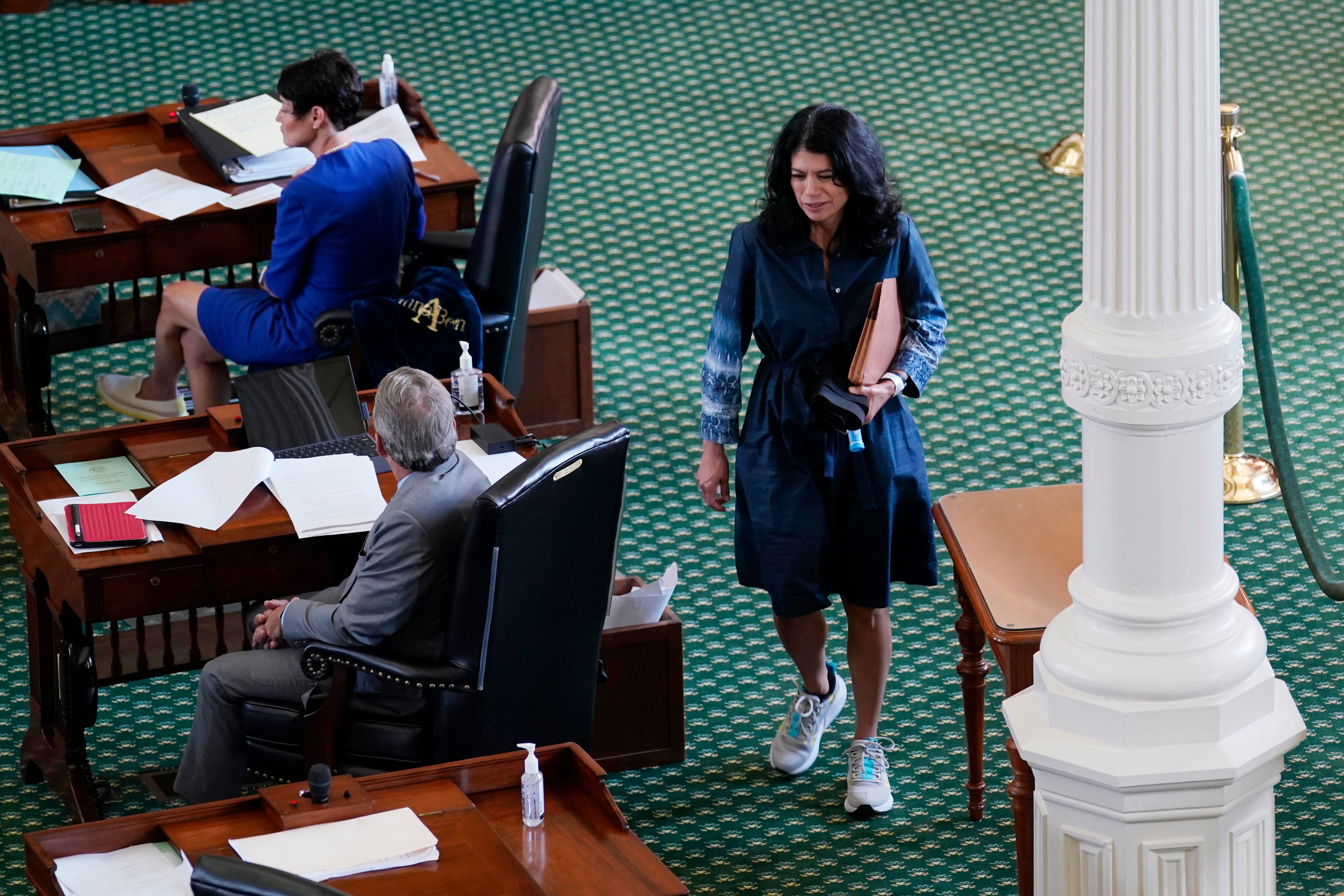Texas senator defies voting limits with 15-hour filibuster
A Texas Democratic senator who spoke for more than 15 hours against GOP voting restrictions knew she was just delaying the inevitable

Your support helps us to tell the story
From reproductive rights to climate change to Big Tech, The Independent is on the ground when the story is developing. Whether it's investigating the financials of Elon Musk's pro-Trump PAC or producing our latest documentary, 'The A Word', which shines a light on the American women fighting for reproductive rights, we know how important it is to parse out the facts from the messaging.
At such a critical moment in US history, we need reporters on the ground. Your donation allows us to keep sending journalists to speak to both sides of the story.
The Independent is trusted by Americans across the entire political spectrum. And unlike many other quality news outlets, we choose not to lock Americans out of our reporting and analysis with paywalls. We believe quality journalism should be available to everyone, paid for by those who can afford it.
Your support makes all the difference.A Texas Democratic senator who spoke for more than 15 hours against GOP voting restrictions knew she was just delaying the inevitable. Still, Carol Alvarado saw the filibuster as one more tactic she could use to spotlight her party's marathon clash with Republicans over voting rights.
And much like her Democratic colleagues who have derailed both chambers of the Legislature Texas by skipping out on work, she did it with dramatic flair.
Alvarado, chair of the Texas Senate Democratic Caucus, took questions from some other senators — mostly Democrats — while standing on the Senate floor from Wednesday evening to Thursday morning. She said the Republican legislation that would increase liberties for poll watchers and prohibitions on 24-hour and drive-thru voting would disproportionately disadvantage disabled voters and minorities. Most of her words were spoken into an empty room, after senators left as the maneuver dragged on.
“Texas Democrats in both chambers draw the line in the sand and say unapologetically and in one accord for the world to hear that voter suppression anywhere is a threat to democracy everywhere,” Alvarado said as she closed out her speech, with Democratic allies forming a line behind her.
Minutes later, the bill passed the Senate in an 18-11 party-line vote. It now goes to the House for a vote, but the legislation can't move forward as minority Democrats there continue their walkout that has stretched into 32 days.
A filibuster can last indefinitely, and the current special session is only on day six of 30. That timeline was not lost on Senate Republicans.
“If she can speak on the bill until Sept 1, it dies,” tweeted Sen. Kel Seliger.
But buying time has been a theme of the Democrats’ summer revolt. In America’s largest red state, they have little choice besides a filibuster or a walkout because they are outnumbered. Republicans won’t budge on their party’s national priority, as seen by the way tightened voting restrictions have been approved in other conservative states such as Georgia, and Florida.
In the Texas Senate, where Republicans hold a majority, making quorum would be possible even if the Democrats walked out. But filibusters have remained an option for minority parties in Texas and at the federal level because senators typically have fewer rules governing how long members can speak.
Alvarado's filibuster is reminiscent of then-Texas Sen, Wendy Davis' use of the delay tactic in 2013 to stop legislation that would have restricted woman's access to abortion. Davis spoke for 13 hours and became a Democratic star. But that hasn't translated to more success for her or the party; she ran for governor but lost badly to Republican Greg Abbott in 2014 and she lost to the GOP's Chip Roy in November when she ran for Congress.
Alvarado's ambitions are unknown. But for her colleagues, that's not necessarily the point.
“At the end of the day, what this bill is trying to do is shave points in close elections, isn’t that right?” Democratic state Sen. Ronald Gutierrez asked Alvarado in his late-night questioning.